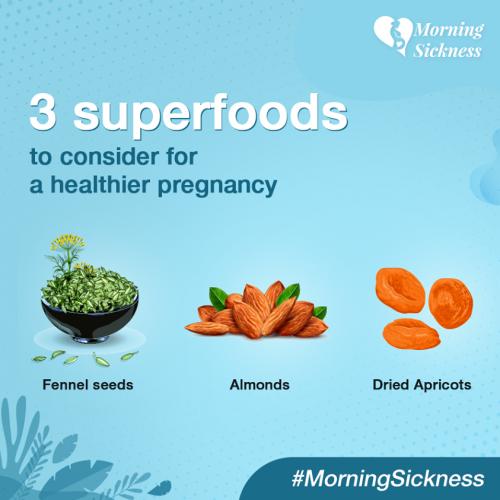What Are the Nutritional Needs of a Pregnant Woman?

Wondering about the vital nutritional needs of a pregnant woman? The answer is simple. According to the American College of Obstetricians and Gynecologists (ACOG), eat a balanced diet that includes a variety of foods from the five basic food groups. Eat whole grains, vegetables, fruits, dairy products and healthy fats to get the vital nutrients essential for you and your foetus.
However, in India, women, in general, do not get the required amount of nutrients and minerals from their regular meals. Therefore, it becomes even more critical to eat a balanced diet for a healthy pregnancy.
Nutritional Needs of a Pregnant Woman
As per ACOG, a pregnant woman must get plenty of iron, calcium, protein, vitamin D, folate and other nutrients and minerals for a healthy pregnancy. Because whatever food you eat is a direct source of nutrition for your baby. So, increase the intake of these nutrients and nourish your baby fully.
Let us see the key nutrients required for a healthy baby and a healthy pregnancy.
Iron
According to the National Institute of Nutrition (NIN), India, iron deficiency (anaemia) during pregnancy may result in low birth-weight infants and high maternal mortality rate. Iron, a micronutrient, is required for haemoglobin synthesis, brain function and immunity. It also helps red blood cells provide oxygen to your baby.
Eat green leafy vegetables, dry fruits, legumes, peas, dried beans or lean red meat to the daily requirement of iron.
Calcium
NIN states that calcium is essential for pregnant women and lactating mothers. Calcium plays an important role in the formation of bones and teeth in the baby, secretion of breast-milk rich in calcium and prevention of osteoporosis in the mother.
Add milk, cheese, curd, paneer, ragi, sesame seeds and sardines to your balanced diet.
Vitamin A
NIN states that Vitamin A is essential during lactation to improve child survival. Also, vitamin A is required for good eyesight in babies, healthy skin, immunity and bone growth.
You need to eat yellow/orange and dark green vegetables and fruits, such as mango, tomatoes, carrots, sweet potatoes, spinach and other sources to get the vitamin.
Vitamin B6
Studies show that eating diet rich in vitamin B6, especially in the first trimester of pregnancy, significantly reduces the feeling of nausea and brings relief from morning sickness. This vitamin is also required to support brain development and immunity in the foetus, form red blood cells and helps the body absorb fats, proteins and carbohydrates.
Eat bananas, wholegrain cereals, oats, milk, soya beans, peanuts, liver, port and some fishes to get the vitamin.
Vitamin B12
According to the National Health Service, UK, lack of vitamin B12 may increase the risk of birth defects, such as neural tube defect in your babies. Therefore, consume enough B12 to form red blood cells and maintain the nervous system.
Add milk, cheese, egg, fish, poultry or liver to your diet.
Vitamin C
Consuming Vitamin C rich food during pregnancy is vital for the baby and mother. Vitamin C helps repair tissues, heals wounds, develops baby bones and teeth, supports the production of collagen, improves immunity and supports the absorption of iron.
Increase the intake of citrus fruits (oranges, lemon etc.,), tomatoes, broccoli, tomatoes, strawberries, amla, guava, green capsicum, green chillies, coriander and cabbage.
Vitamin D
Vitamin D helps your body absorb calcium and phosphate and supports your bone health, muscle health and teeth health.
Go outside in the direct sunlight to get the vitamin. You can also drink milk fortified with vitamin D or eat fatty fishes.
Folate (Folic Acid)
Consuming food rich in folic acid during pregnancy reduces the risk of neural tube defects in your new-born. Folic acid is required to produce protein and blood.
Eat green vegetables, dark leafy vegetables, orange fruit/juice, nuts, legumes and peas.
Nutritional Needs for Twins and Multiples
If you are twins or multiples, it is best to consult with your doctor. Plan your diet as recommended and eat each meal as suggested. The nutritional needs of a pregnant woman with twins or multiples are different from the needs of an expecting mother with one baby.
Prenatal Vitamins Are not a Replacement of Healthy Diet
Your doctor may prescribe certain prenatal vitamins and supplements to support a healthy pregnancy. However, do not mistake these supplements as a replacement for a healthy diet. You need to continue to eat a balanced diet with all the different food groups to get the minerals and nutrients in a natural way.
Supplements are recommended to make sure that you and your baby are getting the required nutrients and minerals insufficient amount. Yet do not consume supplements in excess. Otherwise, it may have unwarranted effects on you.
Apart from consuming a healthy and balanced diet, it is also important to avoid certain foods and beverages that may impair the baby’s growth, have an adverse effect on your pregnancy and may lead to complications. Avoid excess of caffeine in pregnancy, do not drink alcohol, stay away from tobacco and smoking and do not do drugs. Also, it is advised to reduce the intake of certain types of non-vegetarian foods, such as certain kinds of fish, meat, liver, raw eggs and others. Discuss all the dietary and nutritional needs of a pregnant woman with a doctor for a healthy pregnancy.
Post Your Ad Here
Comments